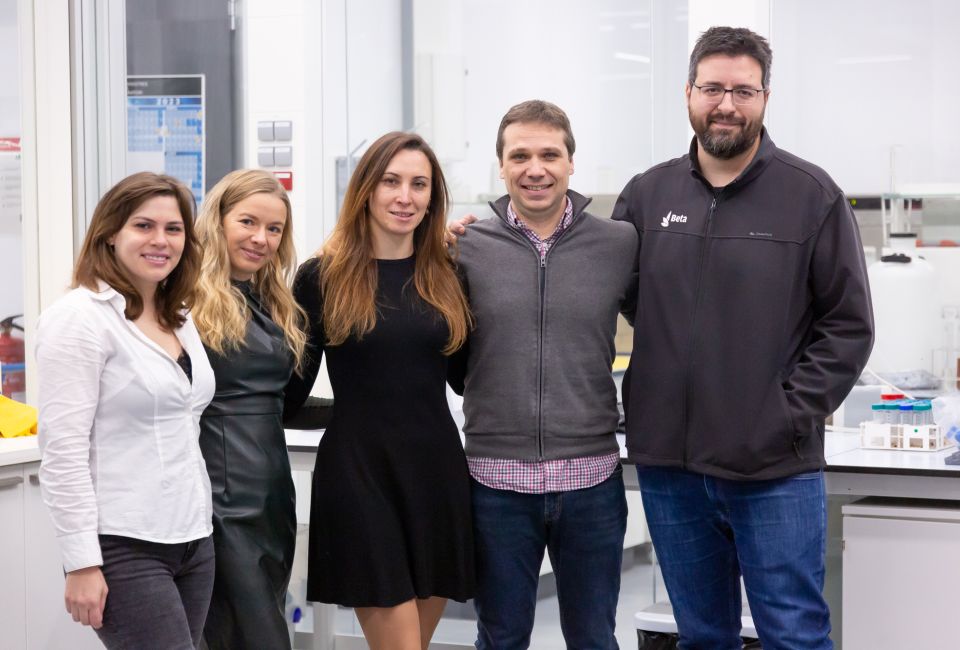#ScienceForUkraine has offered 5,000 jobs for Ukrainian researchers in one year
The BETA Technology Centre of the UVic-UCC is, from the beginning, the coordinator of #ScienceForUkraine in Spain.

One year ago, on 24 February 2022, Russia’s military invasion of Ukraine began. Almost immediately and spontaneously, the international scientific community came together to create the #ScienceForUkraine network to support Ukrainian universities and scientific staff who might be affected by the war. The initiative, which focuses on encouraging universities and research centres to offer temporary jobs and internships for Ukrainian researchers, has managed to create more than 2,600 job offers in one year, which have been converted into more than 5,000 potential jobs worldwide.
The BETA Technology Centre of the University of Vic – Central University of Catalonia (UVic-UCC) is, from the beginning, the coordinator of #ScienceForUkraine in Spain. The director of the technology centre, Sergio Ponsá, explains that they decided to commit to the campaign and lead it with the aim of “contributing to preserving the scientific potential of Ukraine, because with a war like this, in a very short time all the work done by several generations of research in a country can be lost”.
In the last year, CT BETA has made direct contact with 64 universities in 14 Ukrainian cities to find out about their situation and to explain the support that can be offered from the #ScienceForUkraine network. These relationships have led, among other results, that UVic-UCC has signed institutional collaboration agreements with three Ukrainian universities, Ivano-Frankivsk, Poltava and Chernihiv, and is working on others.
Positive balance of the first year
CT BETA makes a very positive balance of this year of campaign, during which it has directly advised about forty Ukrainian researchers who have been contacted and redirected to one of the 250 job offers presented so far in Spain and Portugal, or in other European countries, that fit their professional profile or their scientific experience. Sergio Ponsá, director of CT BETA, explains that “it has not only been a work of collecting data and job offers, and linking them to each other, but we have also encouraged dozens of institutions in Spain to create jobs or we have accompanied them in resolving doubts”.
The #ScienceForUkraine initiative was organised in order to have a database that centralised all the offers of help and in a few days it became the main global reference point for actions in support of the Ukrainian university and scientific world. Albert Palou, Head of Communication and Institutional Relations at CT BETA, comments: “We have not been able to make an exact census of the people who have been able to find a job, but in Spain and Portugal alone we are talking about hundreds of people, including researchers, technical staff and students”. At certain times, #ScienceForUkraine has been supported by 133 volunteers from all over the world.
First entity to host researchers
The involvement from day one in the coordination of #ScienceForUcraine in Spain made CT BETA the first entity in Europe to host people benefiting from the initiative. A few weeks after the outbreak of the conflict, a researcher from Odessa and two other scientists from the Dnipro region arrived at BETA TC. These three arrivals were later completed with six other additions who joined the BETA TC or other UVic-UCC faculties, groups or services. Thus, at certain times this past year, the University has had a total of nine people from Ukraine.
Over the months, the arrival of Ukrainian scientific staff at CT BETA was spreading like an oil slick in other universities in Spain, which in many cases could take advantage and share the experience gained by the UVic-UCC. Albert Palou recalls that at the beginning the experience was intense and that in order to offer advice to other institutions “for a few weeks we put our day-to-day work aside to be able to guide many of these universities”.
The relationship established between the Faculty of Education, Translation, Sport and Psychology (FETEP) at UVic-UCC, through the WIN research project, led by researcher Mireia Canals, and university institutions in Ukraine has also served to have direct contact with representatives of the Ukrainian government. The leadership of the initiative in Spain even led to a visit a few months ago by the Barcelona Delegation of the European Commission to the BETA TC facilities in Can Baumann.
One year later
Twelve months after the start of the #ScienceForUkraine campaign, the situation and priorities have been changing. “We continue to receive requests, but in smaller numbers compared to a year ago. Right now the needs have changed a lot, although we continue to be proactive by contacting universities directly to find out their needs,” explains Palou. Today, the advice given to a significant number of Ukrainian university centres focuses on logistical issues, such as how to obtain or purchase generators to be able to have electricity supply, as this service has been interrupted by the war. It should also be noted that institutional contact with many of the Ukrainian universities must be made informally, directly through their communication spokespersons, since the official email channels and social networks have ceased to function.
At the moment, at UVic-UCC there are three researchers from Ukraine, who are part of the BETA TC team. Galyna Ryabukha is working on actions to support the #Science4Ukraine initiative; Yaryna Zhdanova has joined the International Area of the University and is continuing her PhD, co-directed by a researcher from CT BETA, and Iryna Kohut has joined the management team of new projects of the technology centre.
One year later, the first three Ukrainians who came to CT BETA are pursuing their careers at institutions in other European countries: at a Max Planck Institute (Germany), at ETH Zurich (Switzerland) and at the University of Belfast (UK). In contrast, other researchers who came to UVic-UCC have chosen to return to their university of origin, in Ukraine, if the war situation allowed it.
